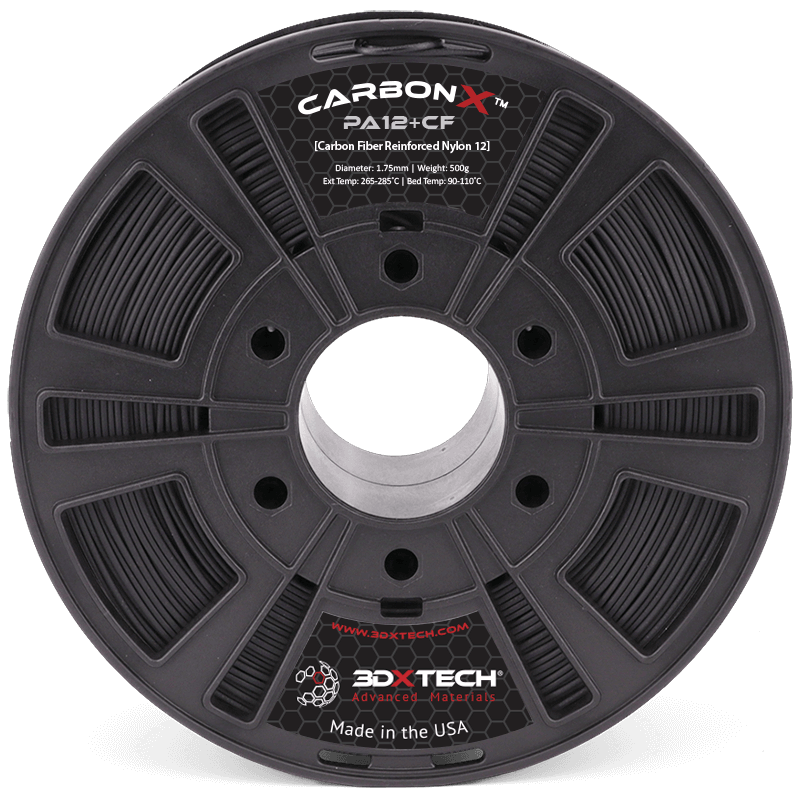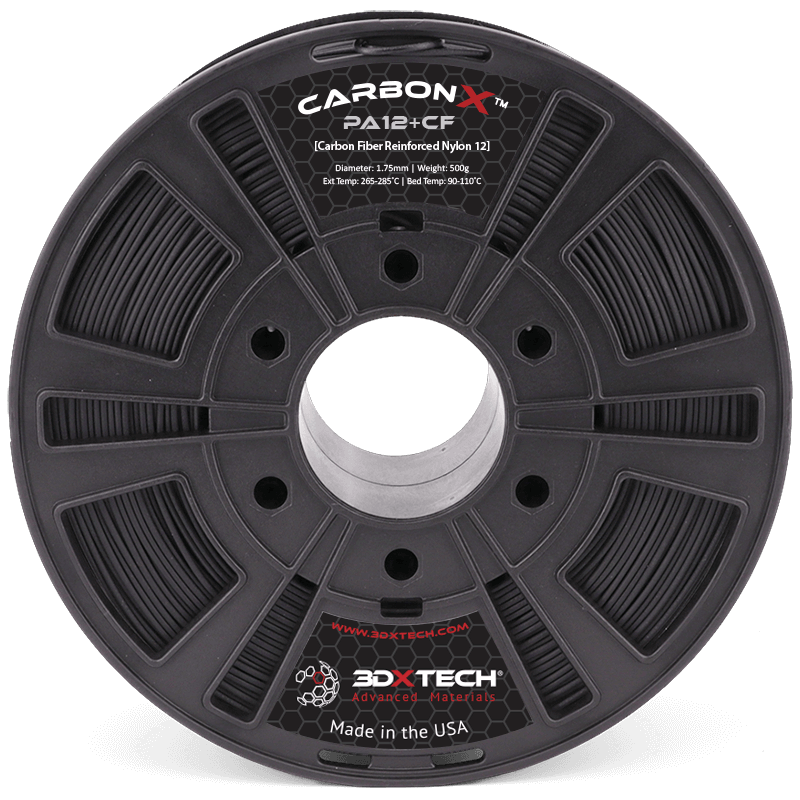CarbonX Nylon 12+CF
CarbonX™ Carbon Fiber PA12 is made using high-modulus carbon fiber and a specialty Nylon 12 (PA12) that we chose for it’s printability, thermal properties, and chemical resistance. PA12+CF is widely used in a variety of industries due to its excellent chemical resistance, low moisture absorption, and wide processing window. Our formulation ensures very low shrinkage in the printed part resulting in excellent dimensional stability, making our PA12+CF an excellent choice for tools, fixtures, and jigs.
MADE IN THE USA
We manufacture all of our filaments in our 68,000 ft² manufacturing facility (located in Grand Rapids, Michigan) using state-of-the-art equipment and processes. Our goal continues to be to make the most innovative filaments on the market – targeting difficult end-use applications.


Print Recommendations
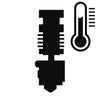
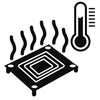
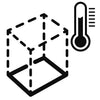



Have a Great Profile? Share It With the Community

